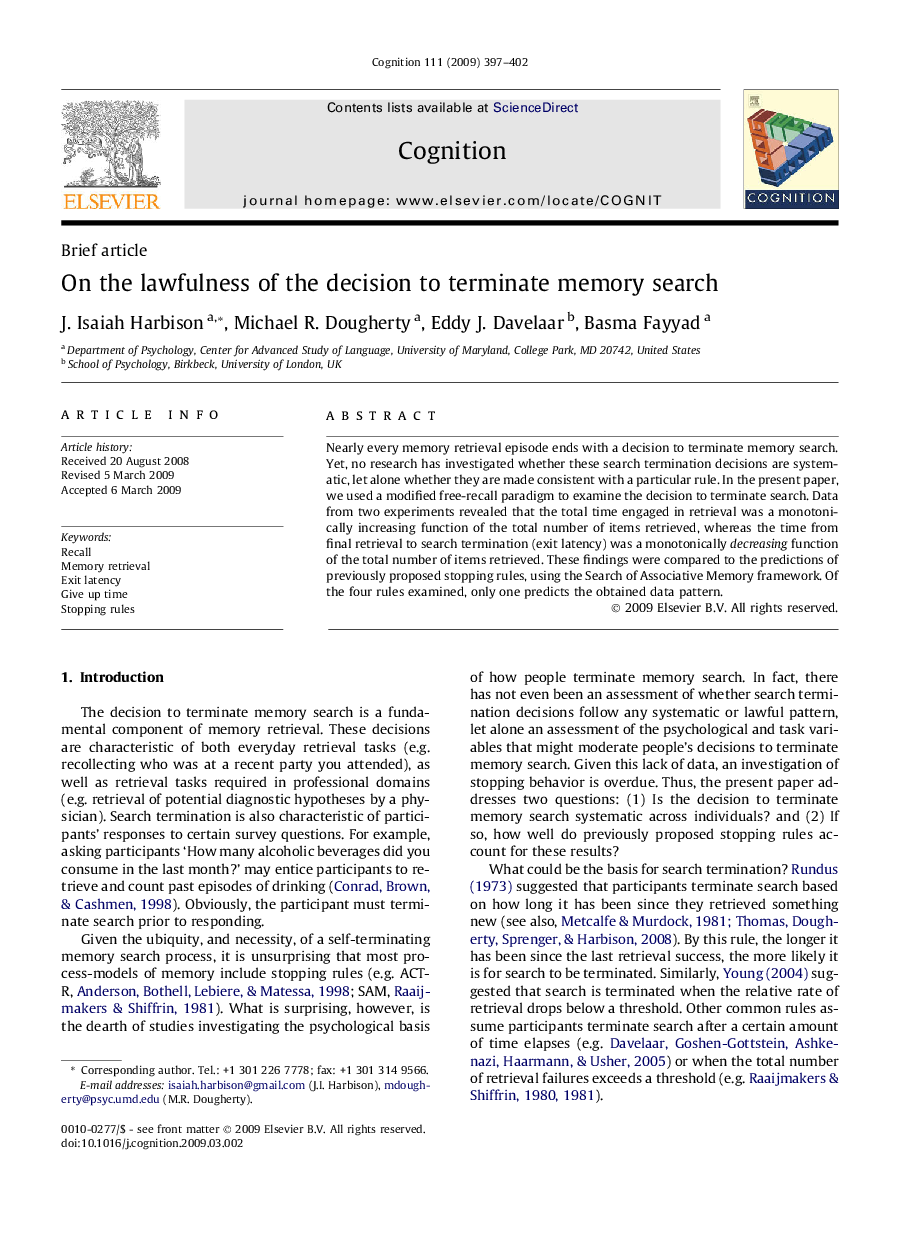| Article ID | Journal | Published Year | Pages | File Type |
|---|---|---|---|---|
| 10457877 | Cognition | 2009 | 6 Pages |
Abstract
Nearly every memory retrieval episode ends with a decision to terminate memory search. Yet, no research has investigated whether these search termination decisions are systematic, let alone whether they are made consistent with a particular rule. In the present paper, we used a modified free-recall paradigm to examine the decision to terminate search. Data from two experiments revealed that the total time engaged in retrieval was a monotonically increasing function of the total number of items retrieved, whereas the time from final retrieval to search termination (exit latency) was a monotonically decreasing function of the total number of items retrieved. These findings were compared to the predictions of previously proposed stopping rules, using the Search of Associative Memory framework. Of the four rules examined, only one predicts the obtained data pattern.
Keywords
Related Topics
Life Sciences
Neuroscience
Cognitive Neuroscience
Authors
J. Isaiah Harbison, Michael R. Dougherty, Eddy J. Davelaar, Basma Fayyad,
